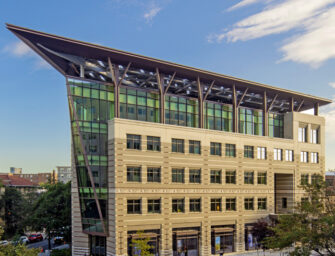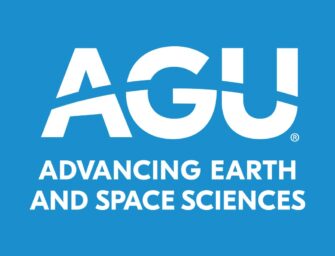Building Global Collaboration, One Relationship at a Time
Science is global, and international scientific collaboration is increasing. Solutions to the world’s most pressing problems require the efforts of the entire global scientific community, but how can individual scientists and organizations like AGU build, support, and participate in those efforts?
As a post-doctoral fellow at the Geological Survey of Japan in the early 1990s, it was my job to identify a mostly buried Cretaceous magmatic arc with gravity and magnetic data . . . and to build relationships with my colleagues in the office, the field, at meetings, and even at karaoke parties.
At first, I only noticed the differences between how my life had been in the U.S. and what it was now in Japan. For example, I could not read, write, or speak much Japanese, which, as you can imagine, made simple things difficult. But, after a while, I was able to find similarities, like when I found a pizza delivery company in the phone book and had dinner delivered to my apartment! In the same way, I started to see the similarities in my work and how we were approached the science. Once I embraced those similarities and realized that science is a global language, I was able to move forward scientifically and enjoy the fun and challenge presented by the differences.
The relationships I formed also had a big impact on my career. While in Japan, I edited a special section in JGR with Gaku Kimura, then at Kochi University, and Kiyoshi Suyehiro, from Tokyo University. Little did I know 20 years later I would be meeting with a delegation from the Japan Geoscience Union (JpGU), including Gaku (now a professor at Tokyo University) in Washington, D.C. We were meeting to discuss several joint JpGU-AGU projects, as well as the new Asahiko Taira International Scientific Ocean Drilling Research Prize. The prize is being made possible by a generous donation from the Integrated Ocean Drilling Program Management International (IODP-MI), of which Kiyoshi is the past president and CEO.
American Geophysical Union (AGU) President Carol Finn (l) and Japan Geoscience Union Chairman Toshitaka Tsuda (r) participate in a joint meeting at AGU’s headquarters in Washington, D.C.
Like AGU, JpGU aims to contribute to the promotion of academic research and technology through international cooperation, dissemination of information to society, presenting the results of research and exchanging information in related fields. Also like AGU, its members represent a broad scientific base, and it serves those members in a variety of ways, including an annual meeting and an open access peer reviewed journal–Progress in Earth and Planetary Science (PEPS).
One difference between the organizations, and an area where I believe AGU can learn from JpGU’s success, is that at the JpGU annual meeting the program includes a policy component that brings science directly to local officials to help inform their policy decisions. As a part of our efforts to learn from each other and work toward our shared goals, the JpGU invited AGU to their 25th anniversary symposium in 2015. We will also be working with JpGU on joint sessions for their meeting in 2016, with the end goal of having a fully collaborative meeting in 2017.
During the meeting with JpGU, Gaku related the story of his first meeting with me. It was at a party where I, sporting a cherry-colored blonde-spotted hairstyle, was doing my sumo wrestler interview imitation. Sumo-san speak a maximum of three words, very slowly, which is why it was the only thing I was ever able to understand when I watched TV. Little did we know that more than 20 years later, the relationship that began at that party would bring us together to help strengthen the bonds of the international scientific community.
Isshokenmei ganbarimasuyo! (“Let’s try hard in tough times”– Sumo wrestlers say this in interviews).




[…] AGU has evolved to reflect the needs of our members and the broader scientific community. In her last blog post, AGU’s president, Carol Finn, offered a glimpse into how AGU is collaborating with societies and […]